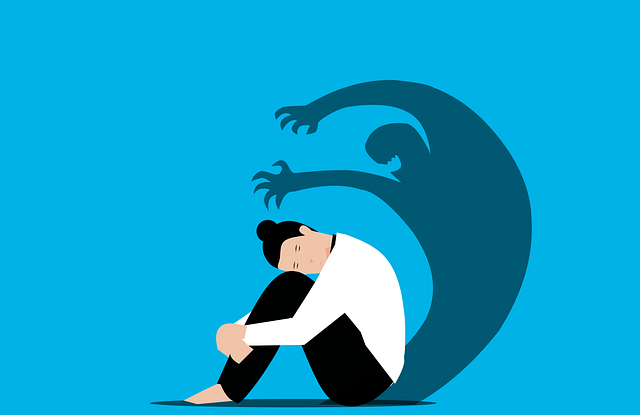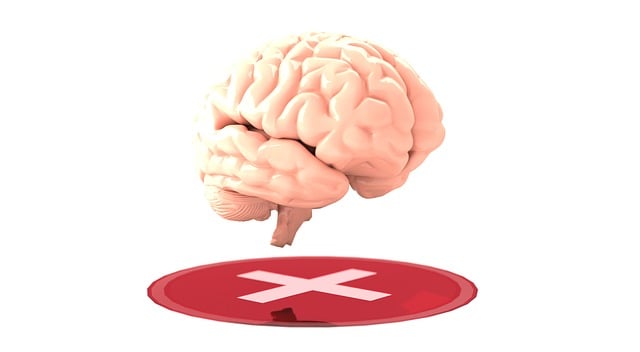Loss, grief, and bereavement are complex human experiences that significantly impact mental health. Centennial Suicide Prevention Therapy (CSPT) offers comprehensive care by focusing on emotional regulation, physical health, and social connections to help individuals navigate these challenges. CSPT incorporates tailored exercises, risk management planning, and coping strategies to prevent suicide and promote long-term recovery. Bereavement counseling overcomes stigma and isolation through safe spaces, empathy, and personalized coping mechanisms, helping clients gradually rebuild after loss. By combining professional support with self-care practices like exercise, diet, rest, and joyful activities, CSPT enhances mental well-being both personally and within the community.
Loss, grief, and bereavement are universal experiences that can profoundly impact an individual’s mental health and well-being. This comprehensive guide explores these complex emotions, from understanding the grieving process to its effects on daily life. We delve into innovative therapeutic approaches, such as Centennial Suicide Prevention Therapy, offering new perspectives for supporting those in distress. Furthermore, practical tips and self-care strategies are provided to help individuals navigate the challenging journey of bereavement.
- Understanding Loss, Grief, and Bereavement: A Comprehensive Overview
- The Impact of Grief on Mental Health and Well-being
- Centennial Suicide Prevention Therapy: An Innovative Approach to Supporting Grieving Individuals
- Common Challenges in Bereavement Counseling: Strategies for Overcoming Barriers
- Practical Tips and Self-Care Techniques for Navigating the Grieving Process
Understanding Loss, Grief, and Bereavement: A Comprehensive Overview

Loss, grief, and bereavement are complex human experiences that vary widely from person to person. Understanding these processes is crucial in providing effective support for those navigating them. Loss refers to the absence or departure of someone or something significant, while grief is the emotional response to loss, characterized by feelings of sadness, anger, confusion, and loneliness. Bereavement, on the other hand, is the period during which individuals adjust to their new reality after a loss. It’s not simply about mourning; it’s about learning to live with the absence of a loved one while finding ways to honor their memory.
Centennial Suicide Prevention Therapy emphasizes the importance of comprehensive care when addressing grief and bereavement. This includes supporting individuals in developing healthy coping mechanisms, such as engaging in self-care practices that promote mental well-being. Establishing and maintaining a consistent self-care routine can be immensely beneficial, boosting confidence and resilience during challenging times. By integrating strategies for emotional regulation, physical health maintenance, and meaningful social connections, individuals can navigate the complexities of loss with greater ease.
The Impact of Grief on Mental Health and Well-being

Grief is a natural response to loss, but it can have profound effects on an individual’s mental health and overall well-being if left unaddressed. The process of grieving is unique for everyone, and what may be considered a typical mourning period varies from person to person. Unmanaged grief can lead to severe emotional distress, making daily functioning challenging. Depression, anxiety, and even thoughts of suicide are not uncommon during intense periods of bereavement. Centennial Suicide Prevention Therapy emphasizes the critical need for support during these trying times, ensuring individuals have access to resources that foster healthy coping mechanisms.
Mental wellness coaching programs development often incorporates strategies to enhance resilience and promote healing. By providing a safe space for expression and guidance, these initiatives aim to improve self-esteem and build adaptive skills necessary for navigating grief. Additionally, community outreach program implementation plays a vital role in connecting individuals with like-minded support systems, fostering a sense of belonging and reducing feelings of isolation commonly associated with prolonged grief.
Centennial Suicide Prevention Therapy: An Innovative Approach to Supporting Grieving Individuals

In the realm of grief counseling, Centennial Suicide Prevention Therapy (CSPT) emerges as a game-changer for supporting individuals navigating loss and bereavement. This innovative approach recognizes that grief can lead to severe emotional distress, sometimes escalating into suicidal thoughts or behaviors. CSPT is designed to help clients develop coping strategies, enhance their sense of self-awareness, and learn effective emotional regulation techniques. By addressing these aspects holistically, CSPT aims to prevent suicide and promote long-term mental health recovery for those experiencing profound grief.
The therapy incorporates tailored Self-Awareness Exercises to help individuals process their emotions and gain insights into their thought patterns. Through these exercises, grievers can identify risk factors associated with suicidal ideation and learn healthy ways to manage them. Additionally, CSPT emphasizes the importance of Risk Management Planning for Mental Health Professionals, ensuring that both clients and counselors are equipped to handle potential crises. By fostering emotional regulation skills, this therapy enables individuals to cope with loss in a safe and supportive environment.
Common Challenges in Bereavement Counseling: Strategies for Overcoming Barriers

Bereavement counseling is a complex field, presenting several challenges that professionals must navigate to provide effective support. One significant hurdle is helping clients overcome the sense of isolation they may feel after a loss, often exacerbating existing mental health issues. Many individuals struggle with the stigma associated with seeking therapy for grief, especially in communities where discussing emotions and vulnerability isn’t traditionally encouraged. This can deter folks from accessing much-needed Centennial Suicide Prevention Therapy.
To address these challenges, counselors employ various strategies. Fostering a safe, non-judgmental space is paramount to encouraging open dialogue. Building empathy through active listening and validating the client’s experience is crucial. Additionally, mental illness stigma reduction efforts are essential in normalizing grief as a treatable condition. Encouraging positive thinking through coping mechanisms tailored to each individual can help clients navigate their sorrow, allowing them to gradually rebuild and find meaning in their lives post-loss.
Practical Tips and Self-Care Techniques for Navigating the Grieving Process

Navigating the grieving process can be incredibly challenging, but there are practical tips and self-care techniques that can help. One effective approach is to engage in Centennial Suicide Prevention Therapy, which provides individuals with tools to manage their emotions and develop coping strategies. This type of therapy encourages open communication about feelings, offers support groups where people can share experiences, and promotes stress reduction methods tailored to each person’s needs.
In addition to professional counseling, practicing self-care is vital for managing grief. Regular physical activity, maintaining a balanced diet, and securing adequate rest are essential stress reduction methods. Engaging in activities that bring joy, whether it’s reading, painting, or spending time in nature, can also help alleviate emotional burden. Through these practices, individuals can foster mental well-being while participating in Public Awareness Campaigns Development and Mental Illness Stigma Reduction Efforts, ultimately supporting not only themselves but also the broader community.
Loss, grief, and bereavement counseling are essential components in supporting individuals navigating emotional challenges. By understanding the complex nature of these processes, therapists can employ innovative approaches like Centennial Suicide Prevention Therapy to mitigate their impact on mental health. Overcoming barriers in bereavement counseling requires strategic adaptations, while self-care remains pivotal for both counselors and clients. This comprehensive overview highlights the importance of access to quality resources and professional guidance during difficult times.














